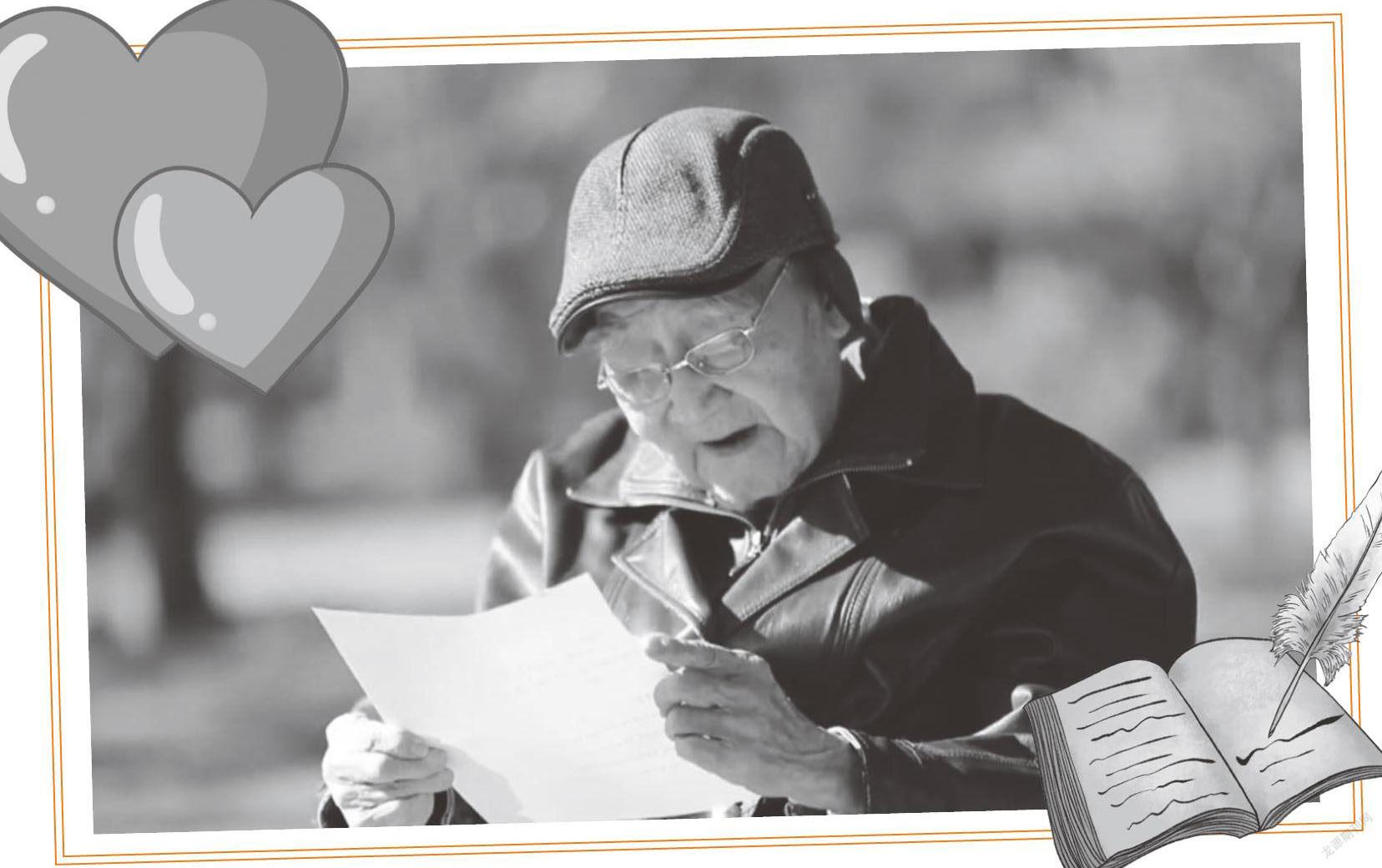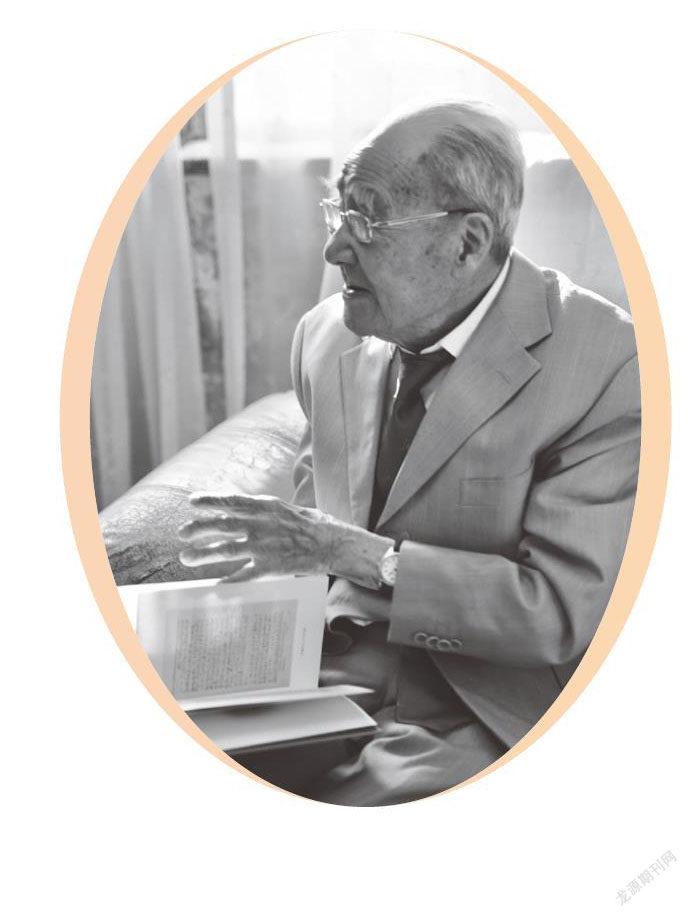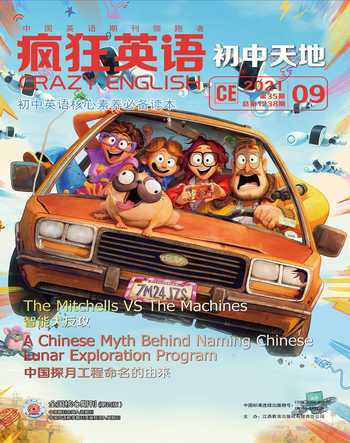The One and Only in English and French Translations ofAncient Chinese Poetry: Xu Yuanchong
Juno



詩译英法唯一人:许渊冲
从事文学翻译长达七十余年,出版中英法翻译著作百余本,被誉为“诗译英法唯一人”,他就是翻译界泰斗许渊冲先生。“只有坚持中国文化的美感,才能让中国文化走向世界。”许渊冲先生这样说,他也这样做了。
Xu Yuanchong, China's most 1)renowned master translator, died in Beijing at the age of 100 on June 17th.
A winner of the highest honor in the field of translation, Xu was best known for his translations of ancient Chinese poems into English and French that have gained worldwide 2)recognition.
Xu Yuanchong was born in Nanchang, Jiangxi Province, in 1921. In 1938, hewas admitted to the Department of Foreign Languages in The National SouthWestAssociated University. His academic career began during his college years. In 1939, as a 3)freshman, he published an English translation of a poem written by Chinese female poet and architect Lin Huiyin titled Don't Cast Away in the Literary Translation News, which is now known as his earliest work.
In his view, a translation should be as beautiful as or even more so than the original. Xu started to practice a new approach to translation in the early 1940s when he worked as an interpreter with a U.S. air force based in China during World War IL At a reception for U.S. pilots, he translated Dr. Sun Yat-sen's Three Principles of the People, the party's guiding 4)ideology for which an English equivalent is ^notoriously difficult to find, into “of the people, by the people, for the people”,a ^reference to U.S. President Abraham Lincoln's famous statement in the Gettysburg Address.
In 1944, he entered the Institute of Foreign Literature Studies at Tsinghua University. From 1948 to 1950, he spent a few years in France studying French literature in the late 1940s. He then returned to China after graduation and was dedicated to translation ever since. Xu was the first Chinese to translate Chinese poetry into English and French inrhyme.
Xu put forward the “Three Beauties Theory” in terms of translation, stressing the importance of beauty that is ^conveyed semantically, phonologically and logically.
"They like uniforms, not the gay dresses," according to a well-known poem from late Chinese leader Mao Zedong,which 8)depicted a military training picture of female soldiers at the time. However, Xu introduced his unique way of translating the sentence, which goes as “Most Chinese daughters have a desire strong, they like to face the power, not to powder the face.” It has become one of the most quoted translations.
He taught at Peking University from 1983 and was awarded the “Lifetime achievements in translation" award from the Translators Association of China(TAC) in 2010. On August 2, 2014, at the 20th International Federation of Translators(FIT), FIT ^conferred The “Aurora Borealis” Prize for outstanding Translation of Literature on Xu Yuanchong, who is the first Chinese winner of the award.
Xu devoted himself to translation for more than 70 years. For him, translated literature is a beautiful art for the whole world.
Throughout his ?lengthy and ^prolific academic career, Xu pursued the beauty of language and was dedicated to creating literary ties between Chinese, English and French speakers. His works have served as a cultural bridge linking the East to the West. English and French-speaking readers are able to better understand Chinese literature through Xu's translations. Meanwhile, Chinese readers can appreciate foreign works in the same way they would read novels and poems written in their mother tongue.
参考译文:
中国最著名的翻译大师许渊冲先生于6月17日在北京逝世,享年100岁。
作为翻译领域最高荣誉的获得者,许渊冲最出名的是将中国古代诗歌翻译成英文和法文,赢得了全世界的认可。
1921年,许渊冲出生于江西省南昌市。1938年,他被国立西南联合大学外语系录取。他的学术生涯开始于大学时代。1939年大一时,他在《文学翻译报》上发表了由中国女诗人、建筑师林徽因创作的诗作《别丢掉》的英文译本,这是他最早的作品。
在许渊冲看来,译作应该和原作一样美,甚至更美。许渊冲从20世纪40年代初开始练习一种新的翻译方法,当时他为在二战期间驻扎在中国的美国空军担任翻译。在一次美国飞行员招待会上,他把孙中山先生的“三民主义”翻译成“民有、民治、民享",这是美国总统亚伯拉罕·林肯在葛底斯堡讲话中的著名言论。
1944年,他考入清华大学研究院外国文学研究所。从1948年至1950年,他在法国学习了几年法国文学。他毕业后回到中国,并致力于翻译。许渊冲是第一个将中国诗歌翻译成英文和法文的中国人。
许渊冲在翻译方面提出了“三美论”,强调美在语念上、音体上和逻辑上传达的重要性。
“不爱红装爱武装"出自毛泽东一首著名的诗,该诗描绘了当时女兵的训练画面。然而,许渊冲用他独特的方式翻译了这句话,即“Most Chinese daughters have a desire strong, they like to face the power, not to powder the face."(中华儿女多奇志,不爱红装爱武装)。它已成为引用最多的翻译之一。
1983年许渊冲在北京大学任教,2010年获中国翻译协会颁发的“翻译文化终身成就奖”。2014年8月2日,第20届国际翻译家联盟大会上,国际译联授予许渊冲“北极光”杰出文学翻译奖,系首位获此殊荣的亚洲翻译家。
许渊冲致力于翻译工作70多年。對他来说,文学翻译是为全世界创造美。
在其漫长而多产的学术生涯中,许渊冲追求语言之美,致力于在讲汉语、英语和法语的人之间建立文学联系。他的作品是连接东方和西方的文化桥梁。英语和法语的读者可以通过他的翻译更好地了解中国文学。同时,中国读者可以像阅读用母语写的小说和诗歌那样欣赏外国作品。

